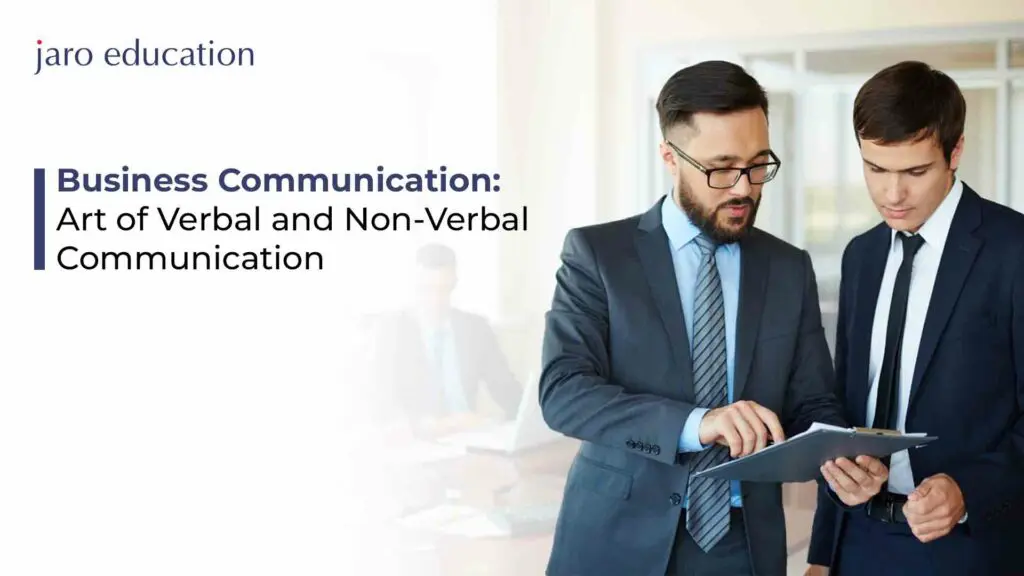
Welcome to the world of business communication! Effective communication is a vital tool that can take your business to great heights. In today’s fast-paced corporate environment, it is critical to master both verbal and non-verbal forms of communication. Whether you’re leading a team or negotiating with clients, having excellent communication skills can make all the difference in achieving your goals. So let’s dive into the art of verbal and non-verbal communication in business and learn how they can help us achieve success!
The Importance of Good Business Communication
- In the business world, communication is key to success. Good communication can help you build strong relationships, resolve conflict, and get ahead in your career. Poor communication can damage relationships, create conflict, and derail your career.
- The ability to communicate effectively is one of the most important skills you must have in business. Whether you’re communicating with employees, clients, customers, or partners, being able to clearly and concisely convey your thoughts and ideas is essential.
- There are two main types of business communication: verbal and non-verbal. Verbal communication includes face-to-face conversations, phone calls, video conferences, and presentations. Non-verbal communication includes body language, facial expressions, tone of voice, and eye contact.
- The best way to communicate is by using a combination of both verbal and non-verbal cues. This will ensure that your message is clear and that you come across as confident and professional.
Some tips for effective business communication include:
- Be clear and concise in your communications
- Listen more than you speak
- Ask questions to clarify understanding
- Use positive language
- Avoid using jargon or technical terms that not everyone will understand
Verbal Communication Skills
Whether you are giving a presentation to a group of clients or speaking to your boss in a one-on-one meeting, your verbal communication skills will play a key role in your success. Here are some tips to help you hone your verbal communication skills:
– Pay attention to your tone of voice. Your tone should be clear, confident, and professional. Avoid sounding monotone or robotic.
– Be aware of filler words. Words like “um” and “like” can make you sound unsure of yourself. If you find yourself using them frequently, take a pause before speaking to give yourself time to gather your thoughts.
Non-Verbal Communication Skills
Non-verbal communication is often overlooked in business settings, but it can be just as important as verbal communication. Here are some tips for improving your non-verbal communication skills:
- Use body language effectively:
Your body language can convey a lot of information, so use it to your advantage. For example, nodding your head can show that you’re agreeing with what the other person is saying while crossing your arms may signal that you’re closed off or uninterested. - Avoid distractions:
When you’re talking to someone, give them your full attention and avoid any distractions, such as looking at your phone or checking your email. This shows that you respect them and are interested in what they have to say. - Practice active listening:
Active listening involves not only hearing what the other person is saying but also trying to understand their point of view and responding accordingly. This can be done by mirroring their body language, making appropriate comments and questions, and showing genuine interest in the conversation
Active Listening Skills
Active listening is a key communication skill in business. It involves paying attention to the speaker, taking time to understand their message, and responding thoughtfully.
When you are an active listener, you create a respectful and open environment where others feel heard and valued. This helps build trust and rapport, two essential ingredients for successful business relationships.
Writing Effective Emails
The ability to communicate effectively is critical to success in business. Whether you are communicating with a colleague, client, or customer, it is important to be clear and concise. Here are a few tips for writing effective emails:
- Use a professional email address: This is the first impression you make, so choose an address that is appropriate and professional.
- Keep the subject line short and to the point: The recipient should be able to understand what the email is about just from the subject line.
- Get straight to the point: Don’t include unnecessary information or small talk.
- Use proper grammar and spelling: This shows that you are detail-oriented and take your communication seriously.
- Avoid using all caps or excessive exclamation points: No one likes to be shouted at!!!
- Proofread your email before hitting send: This will help avoid unnecessary or silly errors.
How Professional Certificate Programme in Advanced Management From IIM Kozhikode Can Help You Learn Business Communication
Communication plays a vital role in any business, whether it is between employer and employee, or customers and businesses. Professional Certificate Programme in Advanced Management from IIM Kozhikode can help you learn the art of communication, both verbal and non-verbal.
The Professional Certificate Programme in Advanced Management is one of the most popular IIM Kozhikode courses that can help you learn how to effectively communicate with others in a business setting. You will learn the importance of both verbal and non-verbal communication, and how to use each to your advantage. With this knowledge, you will be better equipped to handle any situation that may arise in the workplace.
Conclusion
Business communication is an art form that requires both verbal and non-verbal skills. Whether it’s face-to-face interaction, a business presentation or even email correspondence, effective communication plays a key role in ensuring successful outcomes.




